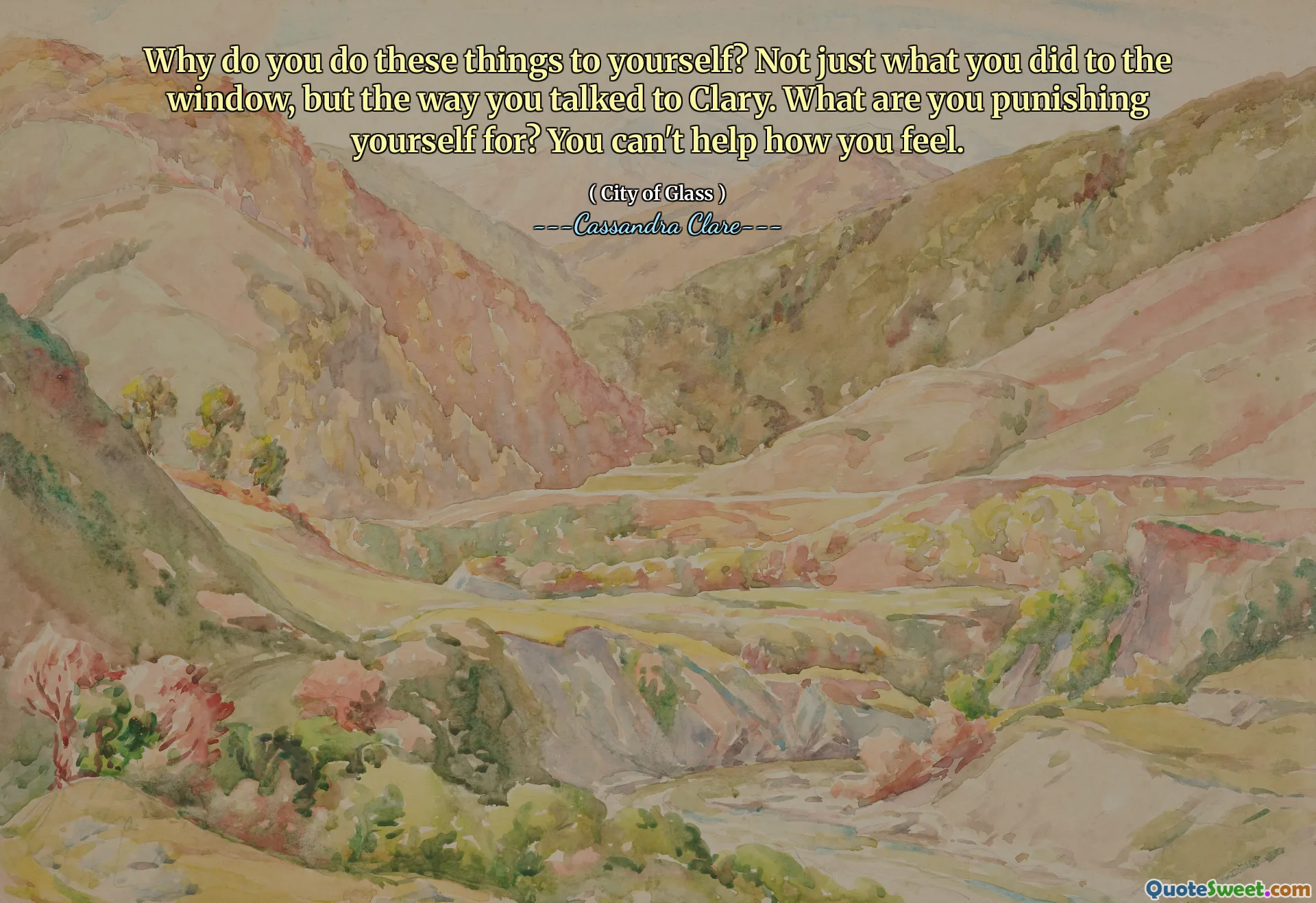
Why do you do these things to yourself? Not just what you did to the window, but the way you talked to Clary. What are you punishing yourself for? You can't help how you feel.
This quote delves into the complex theme of self-awareness and self-punishment, highlighting how individuals often internalize their actions and emotions in ways that can be destructive. The speaker seems to be addressing someone who is experiencing internal conflict and self-judgment, questioning the reasons behind their self-inflicted pain. The mention of both damaging an object and interactions with another person, Clary, suggests that the person's behaviors are connected to deeper emotional struggles. It prompts reflection on how much our feelings and reactions are influenced by internal factors rather than external circumstances.
In many ways, this quote touches on the universal human experience of emotional turbulence and the tendency to blame oneself for feelings that may be beyond control. It confronts the often unspoken dilemma of feeling responsible for one's emotional state and the sometimes harsh self-policing that results from it. Recognizing that "you can't help how you feel" is an important gesture of compassion, acknowledging that emotions are natural and not always within our power to regulate immediately. Such acceptance can serve as a gateway to healing, emphasizing that understanding and compassion—both toward ourselves and others—are essential in navigating emotional hardships.
This moment also reveals a layer of vulnerability, exposing the internal struggles that lie beneath external actions. It suggests an opportunity for growth: to accept oneself, with all imperfections and emotional fluctuations, without undue punishment. In the broader context of personal development, embracing our feelings and understanding their origins can foster resilience and self-kindness, which are key to emotional well-being.
Overall, the quote resonates deeply because it captures an inner dialogue many experience—questioning their own motives, pain, and reactions—while subtly offering a message of acceptance and self-compassion.







